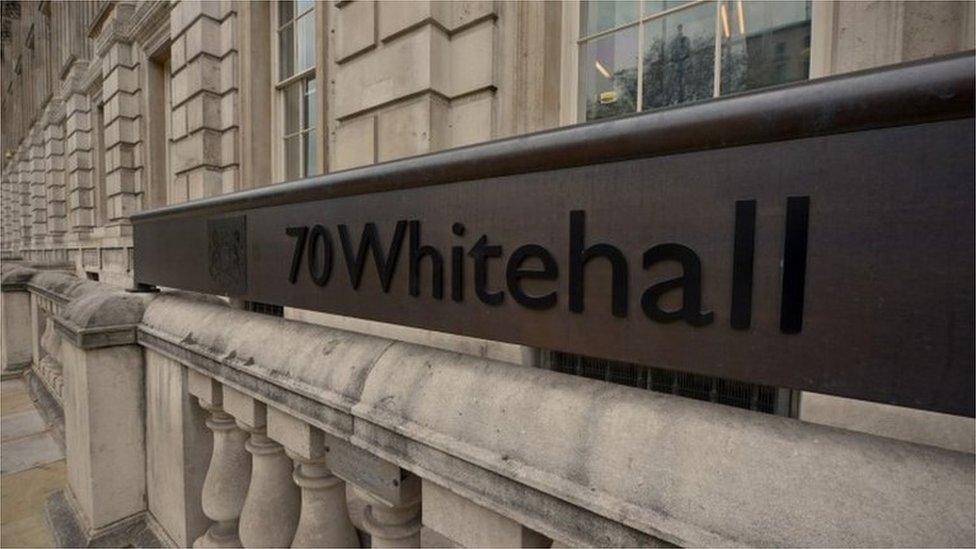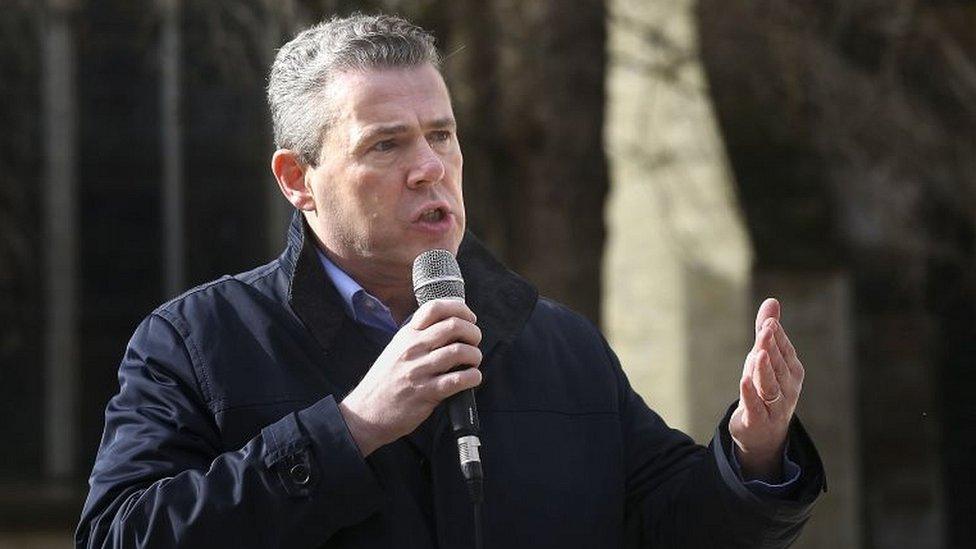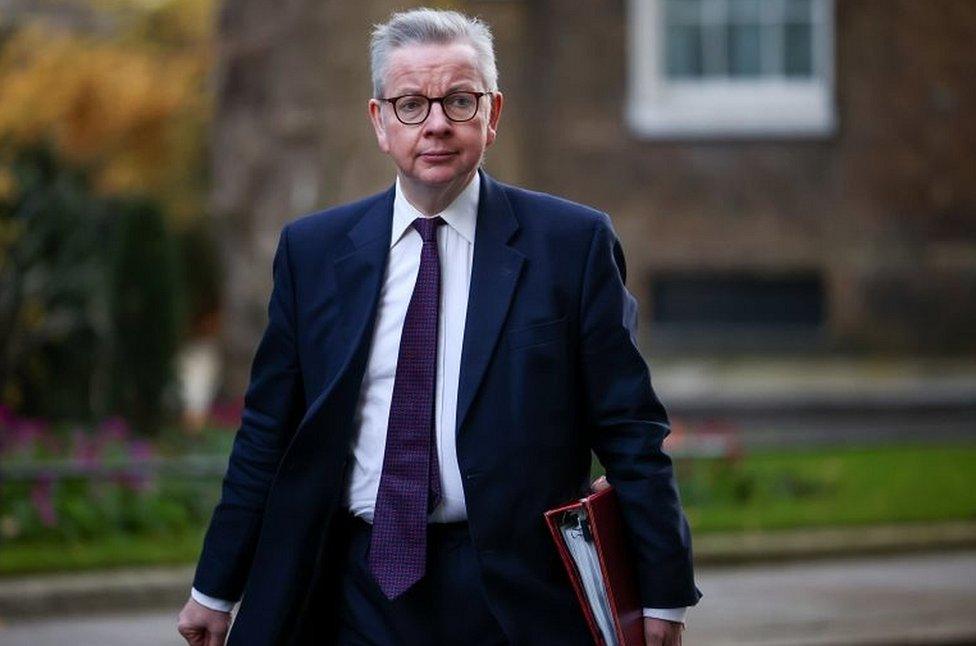'Grave concerns' from union over 'bullying' in Cabinet Office
- Published

A civil servants' union has raised "grave concerns" over claims of bullying and racism in the government department that supports the PM.
In a letter to the Cabinet Office, seen by the BBC, PCS leader Mark Serwotka also says disabled staff have faced "direct and indirect discrimination".
Some civil servants have "contemplated suicide as a direct result" of their treatment, he warns.
The government said it would "work to tackle" harassment and discrimination,
Last month, Prime Minister Boris Johnson wrote to ministers and senior civil servants,, external telling them there was "no place for bullying" in departments.
This happened after an independent report on Home Secretary Priti Patel found she had broken the code governing ministerial behaviour, including shouting and swearing at colleagues.
But Mr Johnson stood by Ms Patel, saying he did not think she was a bully and that he had "full confidence" in her.

Mark Serwotka says "radical change" is needed at the Cabinet Office
In his letter to Cabinet Office permanent secretary Alex Chisholm, Mr Serwotka says staff in his department have demanded "meaningful action" in the "wake" of the report into Ms Patel and the prime minister's memo.
Union officials "believe that there is widespread and ingrained discrimination" within the Cabinet Office, he says, adding that there are "too many senior managers either directly discriminating against colleagues or failing to tackle discrimination within their teams".
The PCS - the UK's largest civil service union, with around 200,000 members - is demanding an independent inquiry, like that faced by Ms Patel.
If this does not happen, it wants the Equality and Human Rights Commission to investigate instead.
The Cabinet Office, which has around 2,500 staff and co-ordinates policy, is "at the heart of government and is supposed to set a good example to the rest of the Civil Service", Mr Serwotka argues.
'Unacceptable pressures'
His letter says some disabled Cabinet Office staff have been "waiting months and years for reasonable adjustments", such as improved access and workstations, to be put in place.
Since the killing of George Floyd by US police in May, "large numbers" of ethnic minority Cabinet Office employees have complained of "prejudice they have had to endure in the workplace", Mr Serwotka says.
He adds that "at least five" employees "have recently contemplated suicide as a direct result of the treatment they have endured in the department".
Asked by the BBC about his letter, Mr Serwotka said: "There are problems that have been developing in the Civil Service for a long time. That's been made worse by unacceptable pressures and bullying at a senior level.
"When that happens at the top level, it trickles down into the general culture."

Michael Gove wants Whitehall to be an "exemplar"
At the end of March this year, 13.2% of UK civil servants, external were from an ethnic minority background - compared with 13% of the working population.
The figure for the Cabinet Office was higher, at 19.9%.
And in June last year - the last available data - 6.3% of the Senior Civil Service was from an ethnic minority background, compared with 6.8% of senior Cabinet Office staff., external
Some 19% of the UK working population is disabled.
Overall, the proportion of Civil Service staff in March this year who were disabled was 12.8%, similar to the Cabinet Office figure of 13%.
But across Whitehall, the department had the highest proportion of senior roles carried out by disabled employees in June last year - 9.6%, compared with 5.1% overall.
'More to do'
A Cabinet Office spokesman said: "Bullying and discrimination is unacceptable. We have a range of policies, initiatives and training in place to prevent it from happening and give staff the confidence to raise and report concerns.
"Our figures show a decline in numbers of those reporting that they had experienced bullying and harassment or discrimination, but we accept that there is more to do and we continue to work to tackle this issue."
Cabinet Office Minister Michael Gove told the Commons Public Administration and Constitutional Affairs Committee it was "absolutely vital" for government to be an "exemplar" in its treatment of disabled people and those with "protected characteristics under the Equality Act".